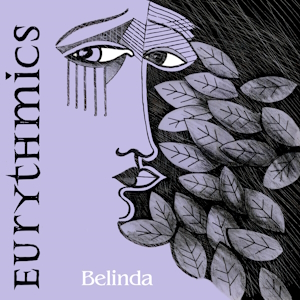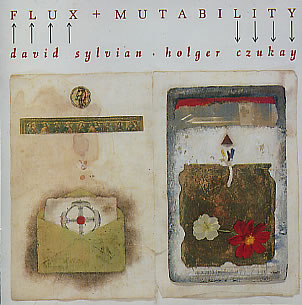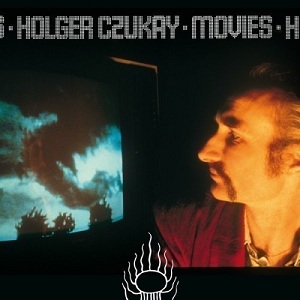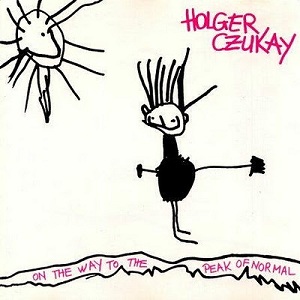
Can were a German experimental rock band formed in Cologne in 1968 by Holger Czukay, Irmin Schmidt (keyboards), Michael Karoli (guitar), and Jaki Liebezeit (drums). They featured several vocalists, including the American Malcolm Mooney (1968–70) and the Japanese Damo Suzuki (1970–73). They have been hailed as pioneers of the German krautrock scene.

Holger Schüring, known professionally as Holger Czukay, was a German musician best known as a co-founder of the krautrock group Can. Described as "successfully bridg[ing] the gap between pop and the avant-garde", Czukay was also notable for having created early important examples of ambient music, for having explored "world music" well before the term was coined, and for having been a pioneer of sampling.

Brilliant Trees is the debut solo studio album by the English musician David Sylvian, released on 25 June 1984 by Virgin Records. The album peaked at number 4 on the UK Albums Chart and has been certified Gold by the British Phonographic Industry (BPI) for sales in excess of 100,000 copies.

Cluster & Eno is a collaborative album by German electronic music group Cluster and English ambient musician Brian Eno. The style of this album is a collection of gentle melodies: a mixture of Eno's ambient sensibilities and Cluster's avant-garde style.

Monster Movie is the debut studio album by German rock band Can, released in August 1969 by Music Factory and Liberty Records.

Tago Mago is the second studio album by the German krautrock band Can, originally released as a double LP in August 1971 on United Artists Records. It was the band's first full studio album to feature vocalist Damo Suzuki after the departure of Malcolm Mooney the year prior, though Suzuki had been featured on most tracks on the 1970 compilation album Soundtracks. Recorded at Schloss Nörvenich, a medieval castle near Cologne, the album features long-form experimental tracks blending rock and jazz improvisation, funk rhythms, and musique concrète tape editing techniques.

"Belinda" is a 1981 music recording by the British new wave duo Eurythmics. It was the band's second single, and the second of two singles to be taken from their debut album In the Garden. The song was co-produced by Conny Plank and featured Robert Görl of D.A.F. and members of Can.

Plight & Premonition is the first of two collaborative albums by English musician David Sylvian and German musician Holger Czukay. It was released in March 1988.

Flux + Mutability is the second collaboration between David Sylvian and Holger Czukay. It was released in September 1989. The music consists of two instrumental tracks improvised by the participants.

Soon Over Babaluma is the fifth studio album by the rock music group Can. This is the band's first album following the departure of Damo Suzuki in 1973. The vocals are provided by guitarist Michael Karoli and keyboardist Irmin Schmidt. It is also their last album that was created using a two-track tape recorder.

Out of Reach is the ninth studio album by the German krautrock band Can, released as an LP in 1978 on Harvest Records. It is their tenth official studio album, discounting compilations such as Unlimited Edition.

Can Live Music is a double live album by the band Can, released in 1999 and recorded in the UK and West Germany between 1972 and 1977. It was originally included in the now out-of-print Can box set, Can Box.

Rastakraut Pasta is the first full-length album by German electronic music duo of Dieter Moebius and Conny Plank.

Movies is the second album by Holger Czukay, released in 1979 through Electrola.

On the Way to the Peak of Normal is the third album by Holger Czukay, released in 1981 through Electrola.

Der Osten ist Rot is the fourth album by Holger Czukay, released in 1984 through Virgin Records.

Radio Wave Surfer is the sixth album by Holger Czukay, released in 1991 through Virgin Records.

Moving Pictures is the seventh album by Holger Czukay, released in 1993 through Mute Records.

Good Morning Story is the eighth album by Holger Czukay, released in 1999 through Tone Casualties.



















